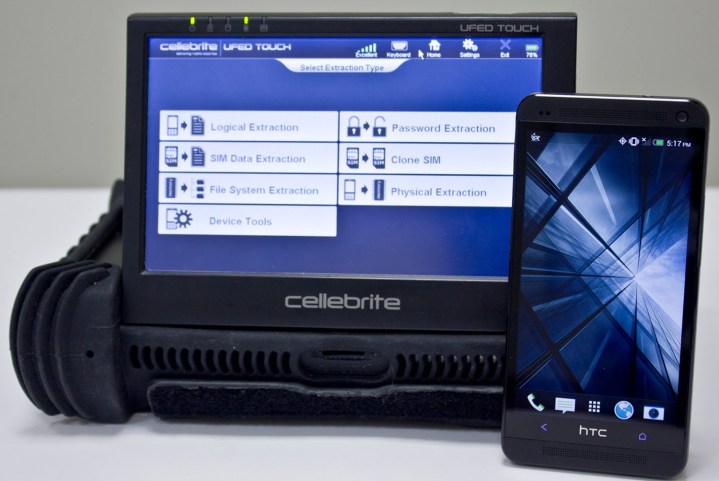
Everyone should know it’s stupid to drink and drive, and if Cellebrite’s technology is approved and adopted for use by police, you better not have been using your cell phone before the accident, either.
T-Mobile Offer: Buy the LG G5 and get a free battery and cradle bundle
You may recognize Cellebrite’s name. It’s the company many think cracked the San Bernardino attacker’s iPhone 5C for the FBI, and its UFED Field Series mobile forensics technology is the proper name for the Textalyzer. Just like police use a breathalyzer to check your blood alcohol level, the Textalyzer checks your phone activity and crucially, ascertains if you were using it at the time of the incident being investigated. That’s bad news if you’re in a state, county, or town where phone use while driving is illegal. Even where hands-on cell phone usage isn’t prohibited while driving, a police record of your activity could matter in civil suits.
What can the Textalyzer find? Expect it to “extract and decode mobile device data such as call logs, contacts, calendar, text messages, media files and more,” according to product literature, so the Textalyzer can tell what you were doing, who you were doing it with, and the contents or actions that took place. And it all happens immediately, on the scene, while you’re still trying to find your insurance card.
Are there questions about privacy, use restrictions, and the possibility of abuse? Of course. Proposed New York state legislation would require drivers to hand over their phones for inspection, but the only actionable information would be whether the phone was in use just before an accident, according to Ars Technica. All personal data including phone contents, connections, and communications would be dark and unreadable, however, without a warrant. With a warrant the UFED Field devices could extract the types of data in the news lately in terrorist, gang, and drug investigations. For typical traffic accidents, what should matter to law enforcement is, “Were you on the phone just prior to the accident?,” and not, “Who were you texting or talking with and what did you say?”
The Cellebrite Textalyzer isn’t approved for use in the U.S. yet, but if the UFED Field Series, or any other mobile use and contents detection technology is allowed, DWT (driving while texting/talking) will join DWI as something you really don’t want on your record.


